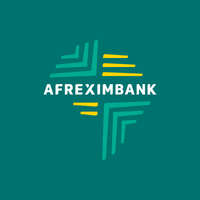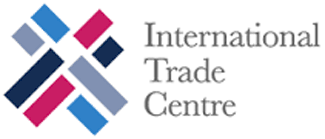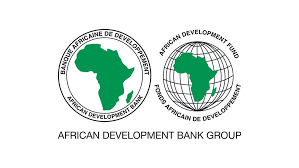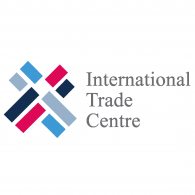Connecting African markets and people: Streamlining regional trade and free movement protocols

Connecting people and markets within and between African countries and regions is a longstanding aspiration and a
core part of the African Continental Free Trade Area (AfCFTA). In this line, the AfCFTA aims to (1) address the challenge
of multiple and overlapping regional economic community memberships and speed up regional and continental
integration processes, and (2) contribute to the movement of people, which aligns with the African Union Free
Movement Protocol (AU-FMP).
This paper discusses these two objectives and looks at how the AfCFTA and the FMP alter the state relations on trade
and movement of people, and how AfCFTA implementation will interact with existing regional agendas and initiatives. It
looks at policy statements and the political economy dynamics likely to shape integration and cooperation efforts, and
helps identify policy priorities for African stakeholders at the national, regional and continental levels, as well as their
external partners.
Hydrocarbon rich Mozambique a future military base for China?

Hydrocarbon rich and strategically located Mozambique in South-eastern Africa is emerging as an important country for China in the Indian Ocean Region. Mozambique has a very long coastal line along the Indian Ocean region and China enters Zambia and Zimbabwe through the Mozambique Channel. To have access to the latter land locked countries where China has massively invested in various projects, rail and road infrastructure are airlifted to Mozambique with the purpose of transporting these equipment and material eventually to & from these countries, according to Africa experts.
Afreximbank African Commodity Index (AACI) Q2-2021

The recurrence of adverse commodity terms of trade shocks has been the bone of African economies, making it crucial for businesses and policymakers to consistently monitor trends in the region's key commodity markets. The Afreximbank African Commodity Index accurately reflects the composition of African commodities and tracks the movement of commodity prices on a quarterly basis.
World Tariff Profiles 2021

Jointly published by ITC, WTO and UNCTAD, this annual report presents tariff-based market access conditions for goods applied by more than 170 countries and territories.
The report contains aggregated product statistics; tariffs imposed and faced by each economy; and an overview of non-tariff measures. The special topic of this year's edition explores the use of non-tariff measures (NTMs) in international trade through the lens of three conventional indicators (frequency, coverage and prevalence) based on the global inter-agency dataset of NTMs.
Le paradoxe de la croissance africaine

Les quinze dernières années de croissance économique impressionnante en Afrique étaient témoins d’une situation paradoxale dans le sens où cette croissance n’a pas été accompagnée par une réduction conséquente des taux de chômage. Une revue non exhaustive des problèmes propres au marché du travail en Afrique Subsaharienne a permis d’alerter sur cinq maux qui inquiètent. Il s’agit de la nécessité de développer et de promouvoir de nouveaux moteurs de croissance afin de remédier à l’incidence de la structure de production et de l’importance des secteurs reposant sur les matières premières sur le marché du travail. De même, le monitoring des changements et des prolongements au niveau de la demande du travail a apporté des éléments de réplique dont le point de convergence est l’inadéquation entre offre et demande d’emploi. Egalement, l’encouragement des pratiques favorables à l’efficience des marchés du travail, notamment au niveau de l’embauche et du licenciement. Enfin, nous rappelons l’importance de penser des scénarios d’incorporation du secteur informel.
Strategy for Economic Governance in Africa (SEGA) 2021-2025

GDP growth projections in Africa were 3.9 percent and 4.1 percent for 2020 and 2021 respectively. This all changed following the most devastating public health crisis in time immemorial that led to the region’s first economic recession in over two decades in 2020. In addition to the economic damages, the COVID-19 pandemic also claimed millions of lives across the world, wrecked livelihoods, and fundamentally changed our ways of being and living. With vaccines now available and being dutifully rolled out across Africa, there is a renewed sense of optimism. If African governments can keep pace with the right set of institutional and governance reforms, we can expect their respective economies to bounce back and leave the worst of the pandemic behind us. The African Development Bank stepped up to support its regional member countries during the pandemic and, in moving forward, the Bank is ready to continue in the journey towards full economic recovery and resilience. The Strategy for Economic Governance in Africa (SEGA) is the Bank’s blueprint for this journey. The document is prepared in full cognizance of the lessons learnt from the pandemic. We now appreciate that public spending must be prioritized towards basic service delivery ensuring that public resources deliver education, health and creating the basis for structural transformation. Significant public investment must be made in the health sector to get hospitals fully equipped and surveillance systems ready to contain any future pandemic. Also, investment in education must remain at primary and secondary school levels, preparing African children for the same future as their peers elsewhere, but the continent must also catch up in what it allocates towards early-stage research and development. We have also learnt that as expenses are allocated towards these sectors the right institutional frameworks must be put in place to stop expenditure leakages.
African Continental Free Trade Area (AfCFTA): webinars and documents

DG TRADE, with the help of consultants, organised four webinars under an EU project on trade and investment relations with Africa that aims to develop a strategic reflection on EU-Africa trade and investment policy and to strengthen cooperation and dialogue between the European Commission, technical experts and trade practitioners in Africa and in the EU.
COMMODITIES & DEVELOPMENT REPORT 2021 - Escaping from the Commodity Dependence Trap through Technology and Innovation

Building technological capacities can help countries escape commodity dependence
About 64% of developing economies rely on exporting primary goods, and most risk continuing down a path of commodity dependence unless they embrace technology-enabled structural transformation.
Developing countries whose economies depend on commodities must enhance their technological capacities to escape the trap that leaves most of their populations poor and vulnerable, says UNCTAD’s Commodities and Development Report 2021, published on 7 July.
About two thirds of developing countries were commodity dependent in 2019, meaning at least 60% of their merchandise export revenues came from primary goods, such as cacao, coffee, copper, cotton, lithium and oil.
The report, “Escaping from the commodity dependence trap through technology and innovation”, highlights the correlation between low technological capacities and high commodity dependence.
It warns that most of the 85 commodity-dependent developing countries (CDDCs) will remain trapped for the foreseeable future unless they go through “a process of technology-enabled structural transformation”.
THE UAE AND CHINA IN THE HORN OF AFRICA

‘A careful foot can step anywhere’ The UAE and China in the Horn of Africa: Implications for EU engagement
Over the last decade, the UAE and China have vastly expanded their economic, political and military footprint in the Horn of Africa, and their actions now have the potential to shape developments in the region. Room for cooperation between Abu Dhabi and Beijing exists on issues such as maritime security, regional stability, and economic development. Moreover, the two countries’ interaction could lead to improvements in the Horn’s underdeveloped infrastructure by triggering a race to investment. Yet, development and stability in the region might suffer if the strategic interests of external players take precedence over local ones, or if local elites (mis)use external support for narrow domestic political calculations. The EU and its member states have high stakes in the Horn’s stability. To optimise their engagement, European policymakers should be aware of the implications of the Emirati and Chinese presence, and they should strive to improve cooperation among the wide range of external players active in the Horn.
Ethiopia: Sustainable Investment Requirements

This is a national companion guide to the publication The Business Guide for Sustainability in Foreign Investments. The companion guide presents an overview of Ethiopia’s environmental and social regulations for investment operations in agroprocessing and light manufacturing. It also provides contacts of relevant national ministries and enforcement bodies.
Foreign investment in Ethiopia unlocks opportunities to reach new regional and global markets and better serve the local market. The actions taken by business managers have tremendous spillover effects, not only for the local economy, but for the social and environmental conditions of the local population. As part of the post-pandemic recovery, investing sustainably is essential.
National legislation, regional trade agreements, and market demand all trend towards increased consideration for social and environmental practices. Beyond the business case for sustainability, international firms and local business must be aware of the requirements in their country of operation in order to avoid repercussions and remain competitive.




